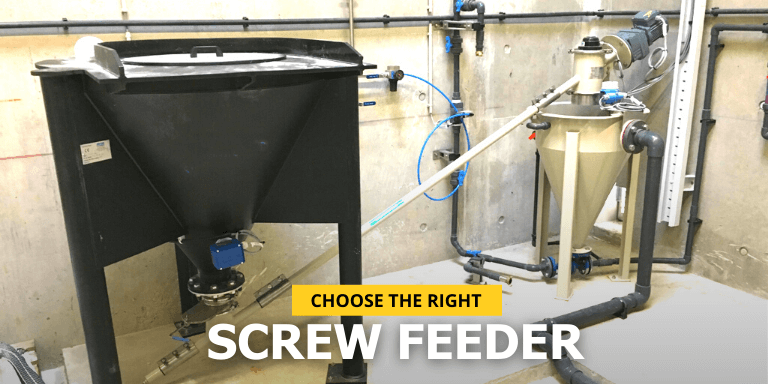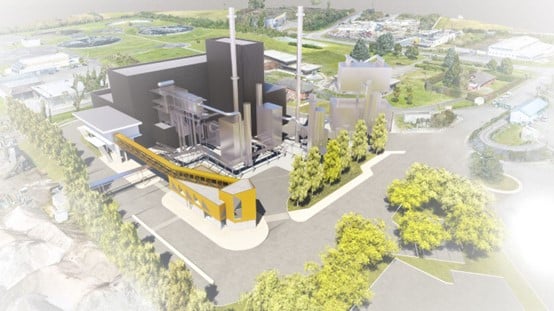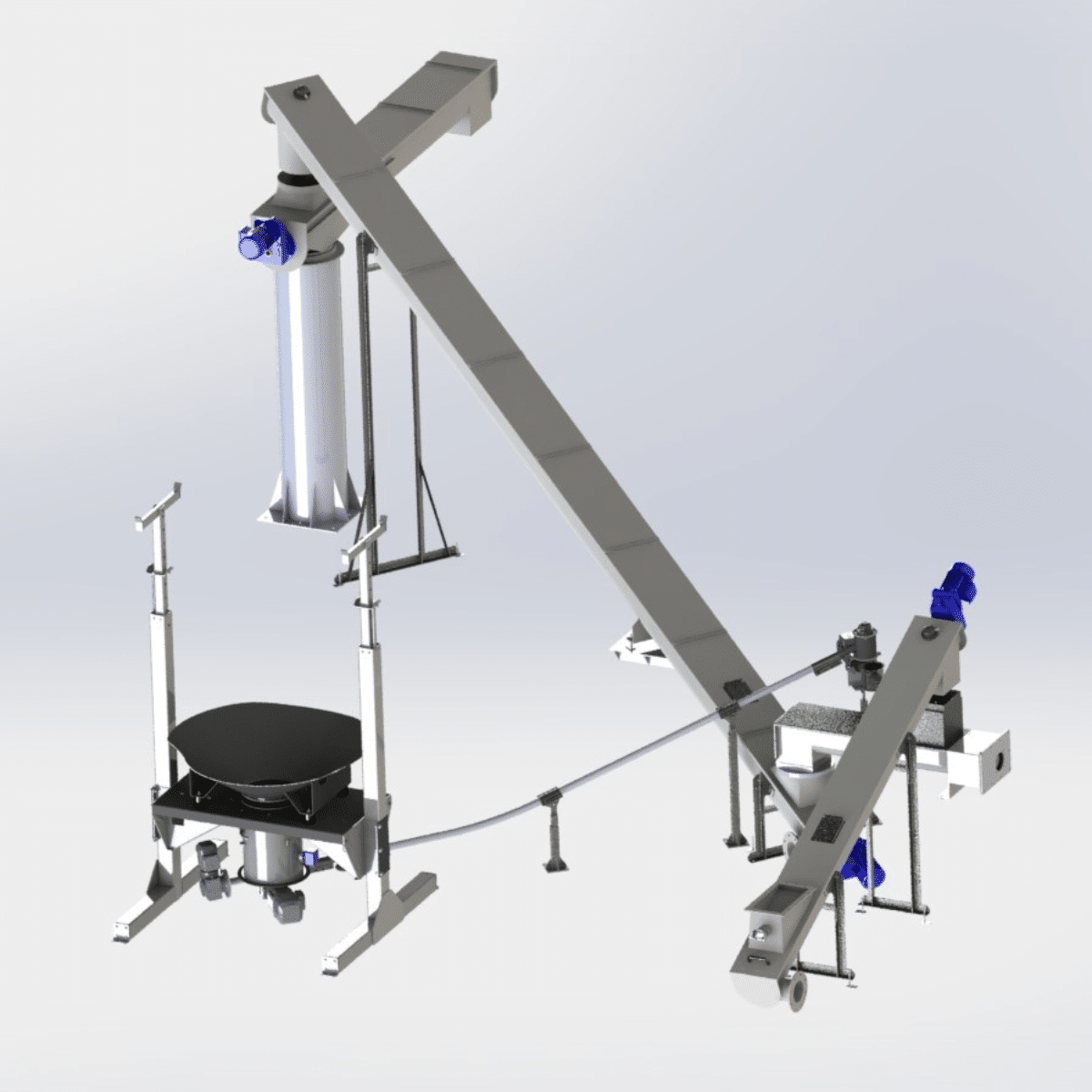Screw feeders come in different lengths, sizes, configurations, and are made from different materials depending on the nature of the product you want to handle. Selecting the right screw feeder for your industry is important for an efficient and safest process.
What is Screw Feeder?
A screw feeder is a piece of equipment that, as mentioned, meters bulk material from a source and into the next process. It is generally placed at the starting point of a process. It is comprised of a rotating helical screw that is installed inside of a trough or tube. As the screw rotates, the product is moved from one point to the next. At one end, the outlet is open to let the product in, while the inlet may be connected to a silo, bin, or hopper. Depending on what is being metered and other factors such as the space available, a screw feeder can be set up at an incline, or horizontally.
Which Industries is a Screw Feeder used in?
As mentioned, a screw feeder is used to move a product from one point to another. The material may be free-flowing like powders and granules or heavy sludge, and it’s used to determine the details of installation, angle of incline, and material used to make the screw feeder, as some materials are flammable while others are abrasive.
Some of the industries that make use of screw feeders include those dealing with:
- Oil refinery
- Wood and wood products
- Waste water treatment
- Agricultural production
- Oil and gas extraction
- Chemicals
- Food processing
- Stone, glass, and concrete
- Pulp and paper
- Primary metals
Different industries have different needs and a number of variables, that make it impossible to use the same size, design, and material of screw feeder. To get the right one for your specific industry, you will need to do explain your needs to the manufacturers of screw feeders like Sodimate.
How to Choose the Right Screw Feeder?
To choose the right screw feeder, you will need to assess your materials and work with a knowledgeable screw conveyor system designer that understands the workings and implications of different screw feeders. It’s important to supply them with all the details of your space and material so that they can make the necessary adjustments to ensure you don’t face problems in the future.
Outlined below are four material characteristics that can cause issues at the feeder and which you need to consider in order to pick the right screw feeder for your industry and make a good investment.
Fibrous
Fibrous materials include wood husks, carpet fibers, and fiberglass. Characteristically lightweight and consisting of long fibers, they often interlock and may get damaged due to this. The best screw feeder would be one with a large gap between the tube and the screw, has a slower rotation, and uses a rotating flow blade.
Aeratable
These materials include glass microspheres and talc powder, and they behave like liquids when they’re aerated, with the potential to create hazardous gas clouds. These dust clouds may ignite when sparked, pose a danger when inhaled, and generally fill the factory with debris. The best screw feeder for these is one with a centre rod and tight seals at points in the process including at the hopper, conveyance system, the feeder, and others.
Abrasive
Abrasive materials include harsh chemicals and they have the potential to wear your feeder prematurely or be damaged by using the wrong lining material in your feeder. The right screw feeder in this case will be one lined with a bolt-in liner made from polyethylene, carbide, or steel. It’s important to consider the abrasion resistance and hardness of the liner to make sure neither the liner nor the material being metered gets damaged.
Cohesive
Materials that are cohesive stick together and clump, leading to rat-holing. Using an asymmetrical mass-flow hopper will help discourage this. For further effectiveness, the hopper shouldn’t have ledges or protrusions to which the material can stick, but should be completely smooth. A slow-spinning agitator as well as external paddles will also help keep clumps from forming.
You can get the right hopper for your industry; however, complex the material may be to work with. Simply speak with the team at Sodimate and send in a sample of the material and you will be directed towards a lasting solution.







